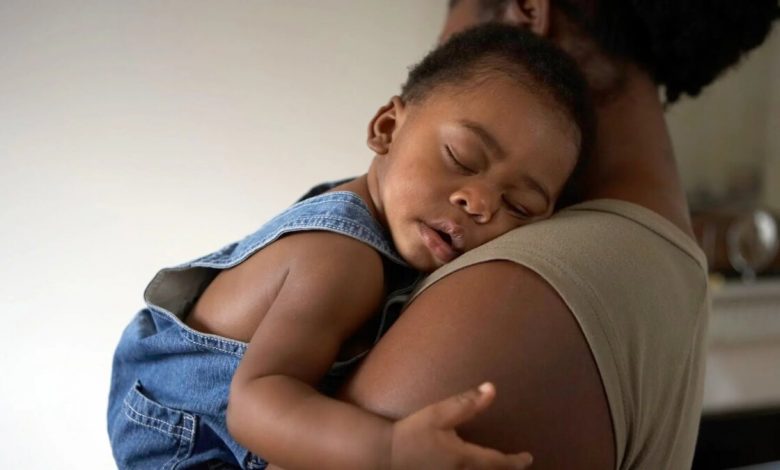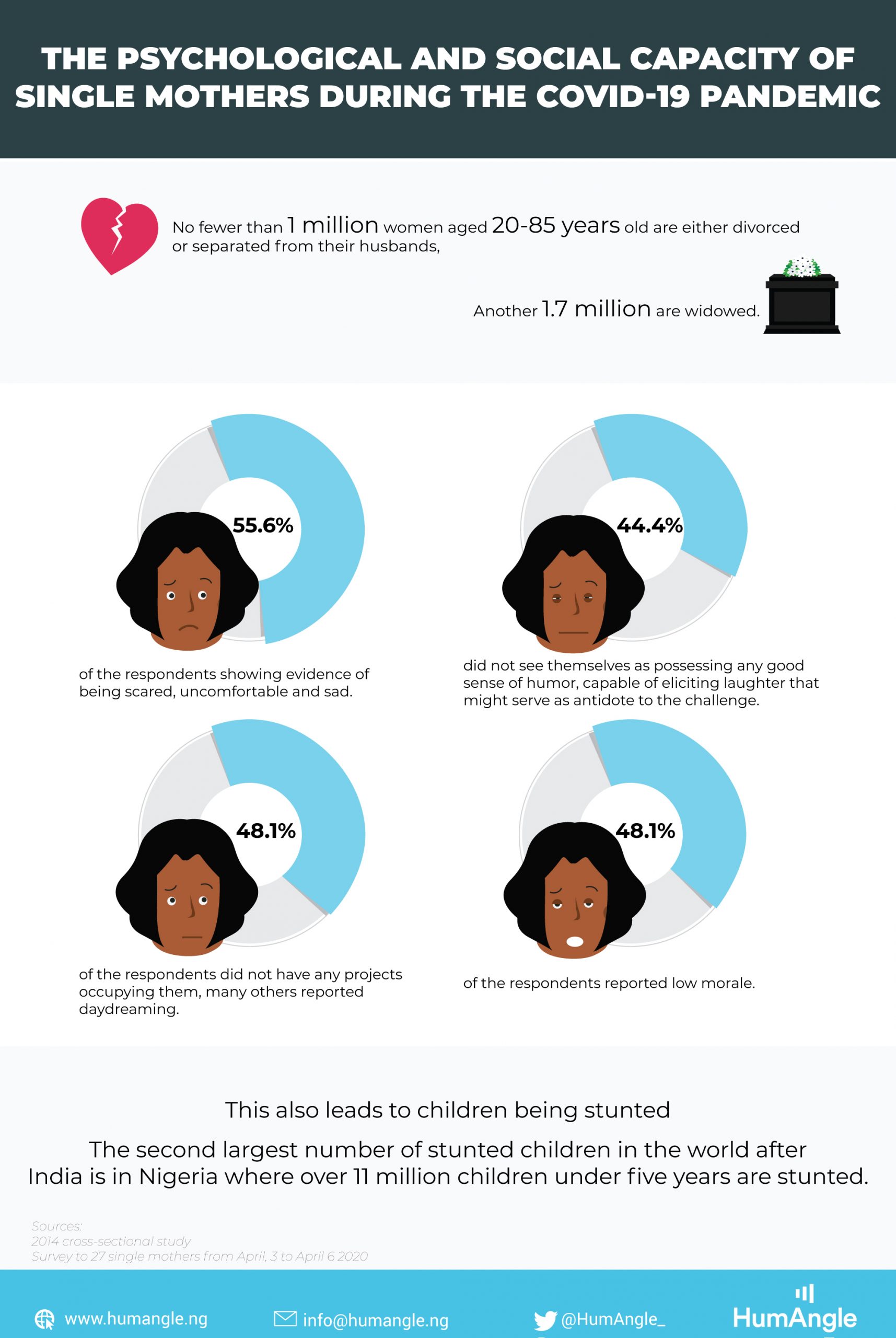The Challenge Of Single Mothers In Nigeria (Part 2)

Britain’s September 2019 statistics showed that a quarter of families with dependent children were headed by single parents and 90 per cent of that number were women within the average age of 39.
Also, the 2014 United States Census Bureau report showed that there were no fewer than 12 million single parent families in the U.S, of which more than 83 percent were headed by women.
Nigeria, like other sub-Saharan countries, is experiencing a steady growth in out-of-wedlock motherhood, which resulted from marital instability, widowhood or personal choice. These have resulted in a large number of single parent mothers catering to families across the country.
A 2014 cross-sectional study indicated that no fewer than one million women aged 20 to 85 years were either divorced or separated from their husbands, while 1.7 million were widowed.
Single Mother Stigma
While not all single mothers are down and out economically, majority are poor and struggle daily to fend for their families. Many are also traumatised by the social conditions associated with not living with a husband.
For instance, Naledi Peters, a software developer and single mother, told HumAngle that she cultivated the habit of wearing a wedding ring to her daughter’s Parent Teachers’ Association meetings to avoid embarrassing questions from other women.
Rita Akpodiete, an 86-year-old great grandmother in Ughelli, Delta State, told HumAngle that during her time it was not common and that women who found themselves in such circumstances were called names.
In several urban and metropolitan cities, single mothers do not find it easy renting a house. Several examples of landlords declaring non-acceptance of such status of women in their properties and instances where rent agreements that had been paid were returned by landlords on learning that the client was a single mother.
The Emotional and Mental Struggles for Single Mothers
Drawing from the foregoing, we administered a survey to 27 single mothers from April 3 to April 6 seeking to test the psychological and social capacity of single mothers in managing the COVID-19 crisis and lockdown in Nigeria.
Medical research reveals that the coronavirus physically affects women less severely than it does to men but gender advocates and researchers state that women are worsted by the pandemic economically. In that category, women who are single parents are in worse torments.
The test highlighted the use of psychometric properties, with 55.6 per cent of the respondents showing evidence of being scared, uncomfortable and sad as a result of COVID-19 and the attendant lockdown.
In testing the morale of the respondents, our test found that 48.1 per cent reported low morale, while 44.4 per cent did not see themselves as possessing any good sense of humor, capable of eliciting laughter that might serve as antidote to the challenge.
Whereas 48.1 per cent of the respondents did not have any projects that are occupying them, many others reported thinking most of the time due to the lockdown.

Single Parenting Handicaps and Child Nutrition Gaps
A 2014 cross-sectional study on likely health outcomes to children nutritional status resulting from single mother parenting in sub-Saharan Africa carried out by Ms Loretta Ntoimo and Mr Clifford Odimegwu, revealed that compared with children whose mothers were in unions, children of single mothers who were not widows were more likely to be stunted.
Economic resources and parental care significantly influenced the higher odds of stunting in single mother households. Relative to children of mothers in unions, the risk of under-five mortality in single mother families was higher in Nigeria, alongside Cameroon and Congo.
Again, the second largest number of stunted children in the world after India is in Nigeria where over 11 million children under five years are stunted.
According to the researchers, economic resources, parental care and exposure to healthy living account for the difference in Nigeria.
The poor child health and survival outcomes in Nigeria remain so because many of the children and mothers who are in need of public health interventions are not reached, research has revealed.
Sociologists say the burden of child rearing by single mothers is enormous. The single mothers contend daily with responsibilities designed by nature for two parents.
These responsibilities, if not adequately managed and provided for, may impact negatively on the upbringing of a child, they conclude.
This report was facilitated by the Wole Soyinka Centre for Investigative Journalism (WSCIJ) under its COVID-19 Reality Check Project.
Support Our Journalism
There are millions of ordinary people affected by conflict in Africa whose stories are missing in the mainstream media. HumAngle is determined to tell those challenging and under-reported stories, hoping that the people impacted by these conflicts will find the safety and security they deserve.
To ensure that we continue to provide public service coverage, we have a small favour to ask you. We want you to be part of our journalistic endeavour by contributing a token to us.
Your donation will further promote a robust, free, and independent media.
Donate HereStay Closer To The Stories That Matter





What checks are the legal system doing to help mothers who have court judgement pertaining to child support from the father of the children but the system does not put in place systems to monitor if this is actually dine/paid. A family court system whereby on a quarterly or 6 months basis the warfare of the child is looked into to be sure the child is getting the possible best.